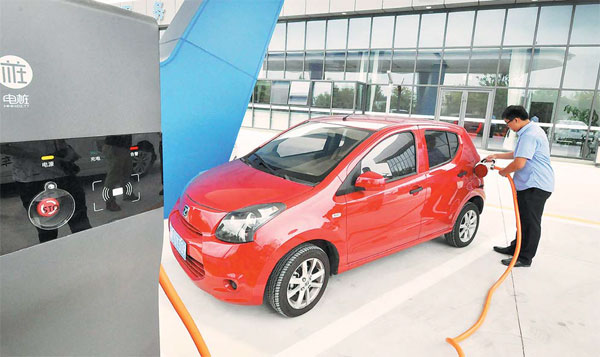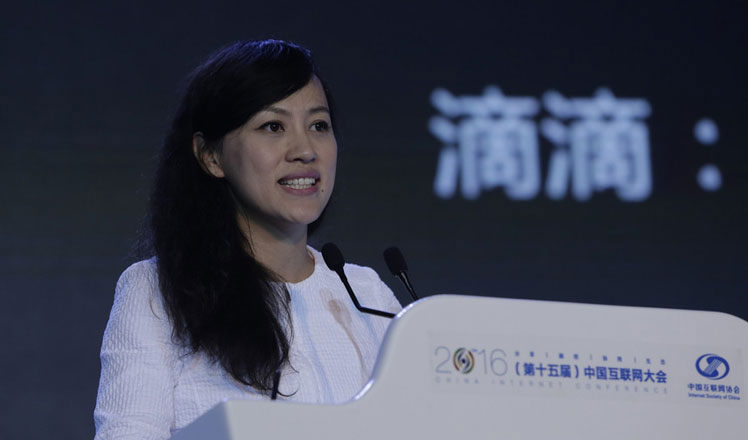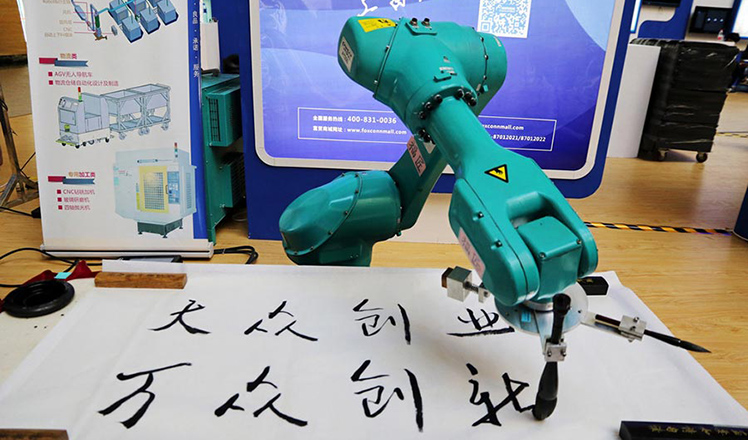Review the need for incentives
Updated: 2016-09-22 08:06
(China Daily)
|
||||||||
 |
|
A man charges his new energy vehicle in Rizhao, Shandong province. The sector sees rapid growth in China. Cai Shiyue / For China Daily |
A recent investigation by the Ministry of Finance into government subsidies for new energy vehicles revealed five manufacturers of such vehicles, including two in Suzhou, East China's Jiangsu province, got the subsidies through deceptive means.
Gemsea, a new energy vehicle-maker in Suzhou, cheated the government of 261.56 million yuan ($39 million) in subsidies by claiming to have sold 1,131 such vehicles by fabricating materials purchase documents, and original papers of vehicle sales and registration. Another company in Suzhou fleeced the government of an extra 519.21 million yuan in subsidies by issuing registration certificates for 1,683 vehicles that, in fact, it had failed to assemble by the end of 2015.
The other three companies used similar means to cheat the government.
The government has taken appropriate measures to retrieve the swindled funds, and barred a couple of the companies from getting the subsidies. But such punitive actions are not enough to end such deliberate and organized fraudulent acquisition of government subsidies by new energy vehicle-makers. Those responsible for the fraud should be held accountable.
Besides, the fraud also makes it necessary for the government to reflect on the limitations of its long-existing industrial policy. The adoption of preferential or supportive programs for certain industries may be necessary to distribute resources efficiently when the market-based mechanism for resource distribution doesn't work properly. But the presence of a visible government hand usually makes it difficult for certain industries to develop in a healthy manner.
There is no reason to believe government officials have a sharper sense of market trends than entrepreneurs. Government officials cannot predetermine or preplan the development of any industry because they may be high on theoretical knowledge but lack entrepreneurial acumen.
The supportive policy offered to a certain industry is like risk investment that may or may not fetch returns. Innovation should be encouraged in all industries, but distorted incentive policies should be stopped.
- Greek govt vows to improve refugee situation on island after fire
- Kremlin says hope for restoring truce in Syria 'weak'
- US sends 2 B-1B bombers to ROK after DPRK's nuke test
- Weekend's violent attacks in US could help Trump's campaign
- Syrian army declares end of Russian-US brokered truce
- China supports further reaction to DPRK's latest nuclear test

 Top 14 Chinese women in Fortune's ranking
Top 14 Chinese women in Fortune's ranking
 Hangzhou airport offers beds to tired travelers
Hangzhou airport offers beds to tired travelers
 Protesters march against EU trade deals with US
Protesters march against EU trade deals with US
 In photos: Chinese harvest in full swing
In photos: Chinese harvest in full swing
 Ladies present Qipao in South China's Guangxi
Ladies present Qipao in South China's Guangxi
 Robot writes beautiful calligraphy
Robot writes beautiful calligraphy
 Colorful Yunnan through the lens of Italian photographer
Colorful Yunnan through the lens of Italian photographer
 Beer lovers' carnival
Beer lovers' carnival
Most Viewed
Editor's Picks

|

|

|

|

|

|
Today's Top News
Trump outlines anti-terror plan, proposing extreme vetting for immigrants
Phelps puts spotlight on cupping
US launches airstrikes against IS targets in Libya's Sirte
Ministry slams US-Korean THAAD deployment
Two police officers shot at protest in Dallas
Abe's blame game reveals his policies failing to get results
Ending wildlife trafficking must be policy priority in Asia
Effects of supply-side reform take time to be seen
US Weekly

|

|







